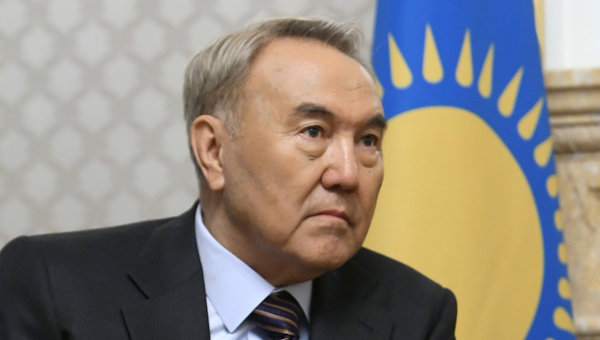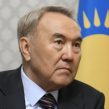
Astana Hosts Islamic Economic Conference Downplaying Political Dimensions
Publication: Eurasia Daily Monitor Volume: 8 Issue: 117
By:

With the recital of verses from the Koran, on June 7 the seventh World Islamic Economic Conference opened in Astana. The widely publicized event marked an important milestone in Kazakhstan’s relations with Islamic states and a new diplomatic overture on the international scene for the country as it currently chairs the Organization of Islamic Conference (OIC). The conference as well as the chairmanship of Kazakhstan in the OIC is obviously intended to further the image of Astana as a promoter of peace and reconciliation between the Muslim world and the West.
Addressing the delegates of the conference, President Nursultan Nazarbayev said that Muslim nations should undergo serious economic and technological modernization without distorting the fundamental principles of Islam in order to adequately respond to the challenges from the developed world, stressing that modernization concerns above all economic, educational and technological areas, not the basics of Islam. “Some critics of Islam assert that the backwardness of the majority of the Islamic part of the world is related to the nature of the religion itself. Nothing can be further from the truth,” he said. Nazarbayev also suggested the creation of an innovation center of OIC member countries to overcome the underdeveloped scientific progress of Islamic nations (Khabar TV, June 8).
Kazakhstan’s policy regarding Islamic states, based on a selective approach, has been inconsequential and markedly contradictory in recent years. During the Iraq war, Kazakhstan sent engineers from its peacekeeping battalion (KAZBAT) employed in demining operations in the framework of the country’s partnership with NATO, avoiding at the same time any engagement of its troops in combat operations. On June 9, the upper chamber of the Kazakh parliament voted against the ratification of the agreement between Kazakhstan and NATO on the participation of Kazakh military units in the International Security Assistance Force (ISAF) in Afghanistan. Substantiating the decision, Svetlana Zhalmaganbetova, a Member of Parliament, suggested that Kazakhstan should not be dragged into the Afghan war for the sake of cooperation with NATO (KTK TV, June 9).
Events preceding the blocking of the ratification of the agreement by parliament point to growing anti-American sentiments in Kazakh society, which could not be ignored by the ruling elite alarmed by the chain of anti-government uprisings in Arab countries and the fragility of the political situation in Kazakhstan. Prior to the vote in parliament over Afghan issue, the Association of Veterans of the 1979-1989 war in Afghanistan collected signatures of citizens to undermine the alleged plans of the government to dispatch troops to Afghanistan and launched a “No to a new war!” campaign.
Afghanistan, which cost Kazakhstan more than 14,000 lives in the ten-year war, remains a sensitive issue in this Muslim country. Protests against the involvement of Kazakhstan in military operations in Afghanistan is partly fuelled by the reluctance of the authorities to settle the accumulated social problems of the veterans of the Afghan war and the fear that, as Kazakh political experts warn, the prolonged war in that country will destabilize the political situation in Central Asia and prolong the US military presence to the region.
Another source of irritation for critics of Western democratic standards is the religious issue. In the public eye, authorities too readily accept the concept of religious freedom which opens the way for sects and trends alien to the mentality and cultural traditions of Kazakhstan, imposed on them by the Organization for Security and Cooperation in Europe (OSCE). Yelbosyn Smagulov from the Almaty-based International Center of Culture and Religion appealed to parliament to introduce stricter rules for the registration of religious sects and raise the Russian Orthodox Church and Islam to the level of state religions (Panorama, June 3).
However, Astana still refrains from active political cooperation with Islamic states, and did not comment in any way on western military assistance to rebel forces in Arab countries and air attacks on Libya at an official level. This ambivalent position suggests that Kazakh diplomacy has no clearly defined political goals in the Arab world and prioritizes, as before, the enhancement of economic links with Islamic states.
The most illustrative example of this trend is the growing investment activities of the Islamic Bank of Development in Kazakhstan, which plays a key role in providing financial assistance to the construction of the railroad from Kazakhstan to Iran via Turkmenistan. The preliminary agreement to develop the project, which is estimated to cost Kazakhstan $430 million, was concluded between Kazakhstan, Turkmenistan and Iran in 2007. The completion of the construction of the railroad from Uzen in Western Kazakhstan to the Turkmen border town of Kyzylgaya and further to Gorgan in Iran is scheduled for December this year. The railroad with a transportation capacity of 9.6 million tons in the initial year of its operation is regarded as the first over-land transport link between Kazakhstan and Iran.
The new rhetoric in Kazakhstan’s foreign policy does not signal a re-evaluation of its policy towards the Muslim world and change of attitude towards the West. Even as the chairman of the OIC, Astana will adhere to its long-tested multi-vector policy.




